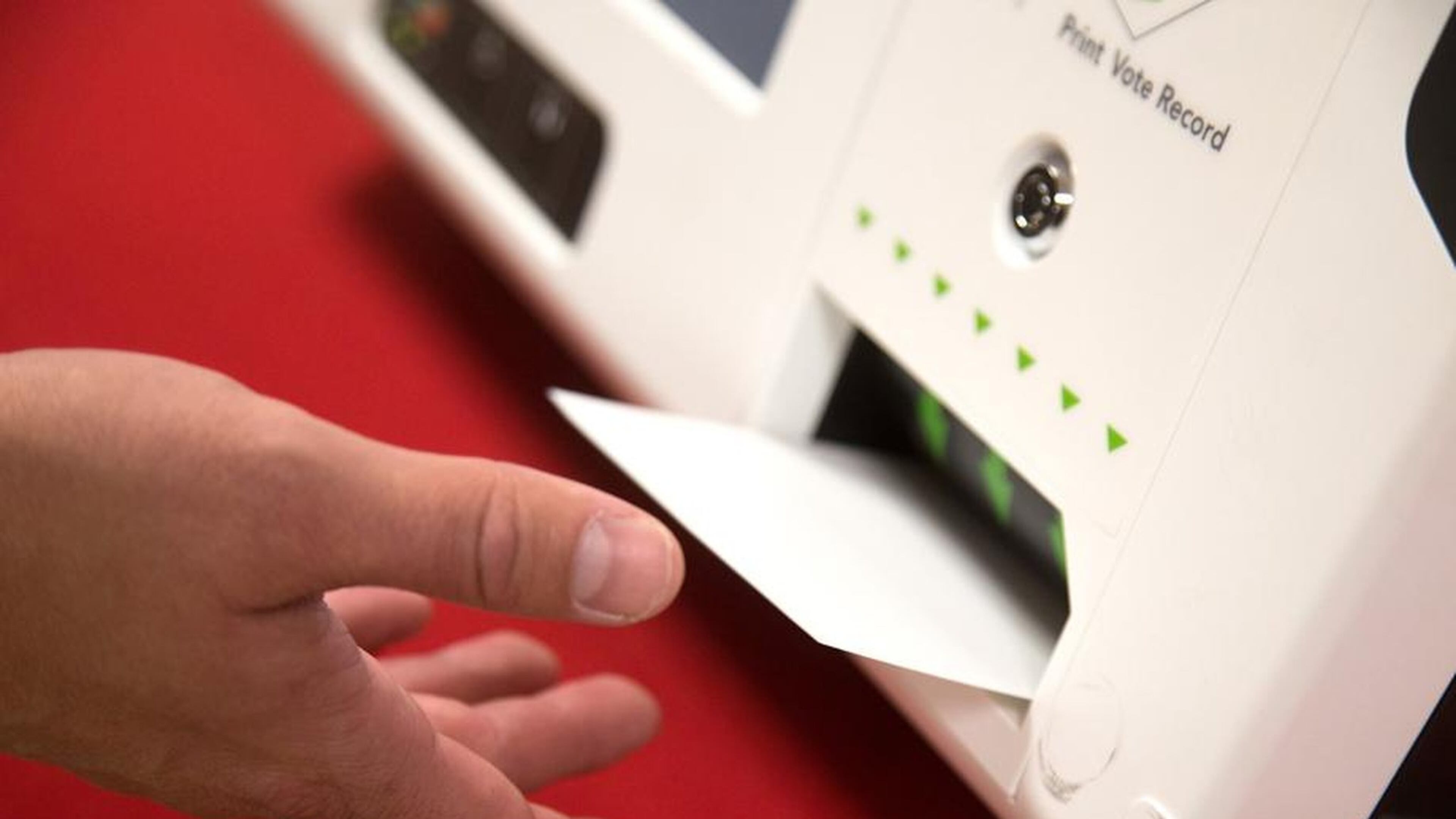Georgia Senate votes to switch elections to paper ballots

The Georgia Senate on Wednesday voted to approve a measure that would move the state from using digital to paper ballots during the state’s elections.
The measure, Senate Bill 403, calls for the state to scrap its 16-year-old touch-screen voting system and replace it with a paper-based system.
"This looks at replacing voting machines so that every single voter in our state's vote that's cast will be preserved," said state Sen. Bruce Thompson, R-White, the bill's sponsor.
Currently, Georgia’s 27,000 touch screens leave no paper record of how people voted, making it impossible to audit elections for accuracy or to conduct verifiable recounts, lawmakers said.
Legislators lately have begun to favor paper ballots because they can’t be hacked.
During the DefCon computer hacking conference in Las Vegas in July, tech experts exposed security vulnerabilities in the type of voting machines used in Georgia that could allow them to be compromised.
Though there's no evidence hackers have penetrated Georgia's voting machines, it's possible that without a paper trail, no one would ever know if the machines' programming had been altered.
The legislation would direct the Georgia Secretary of State to select a new vendor to conduct the state’s elections. The Secretary of State would have to issues a request for vendors by Jan. 31, 2019, and announce the selection by June 1, 2019.
The new system would be in place for use in time for the 2020 presidential primary election.
Senators said it would cost the state between $35 million and $125 million to migrate to the new system, depending on which voting system is selected. Local governments would not be required to pay the cost of the new system.
Lawmakers and election officials say the need to replace Georgia’s voting system has been a long time coming.
The state’s touch screens use obsolete technology: the Windows 2000 operating system, which is no longer supported by Microsoft.



